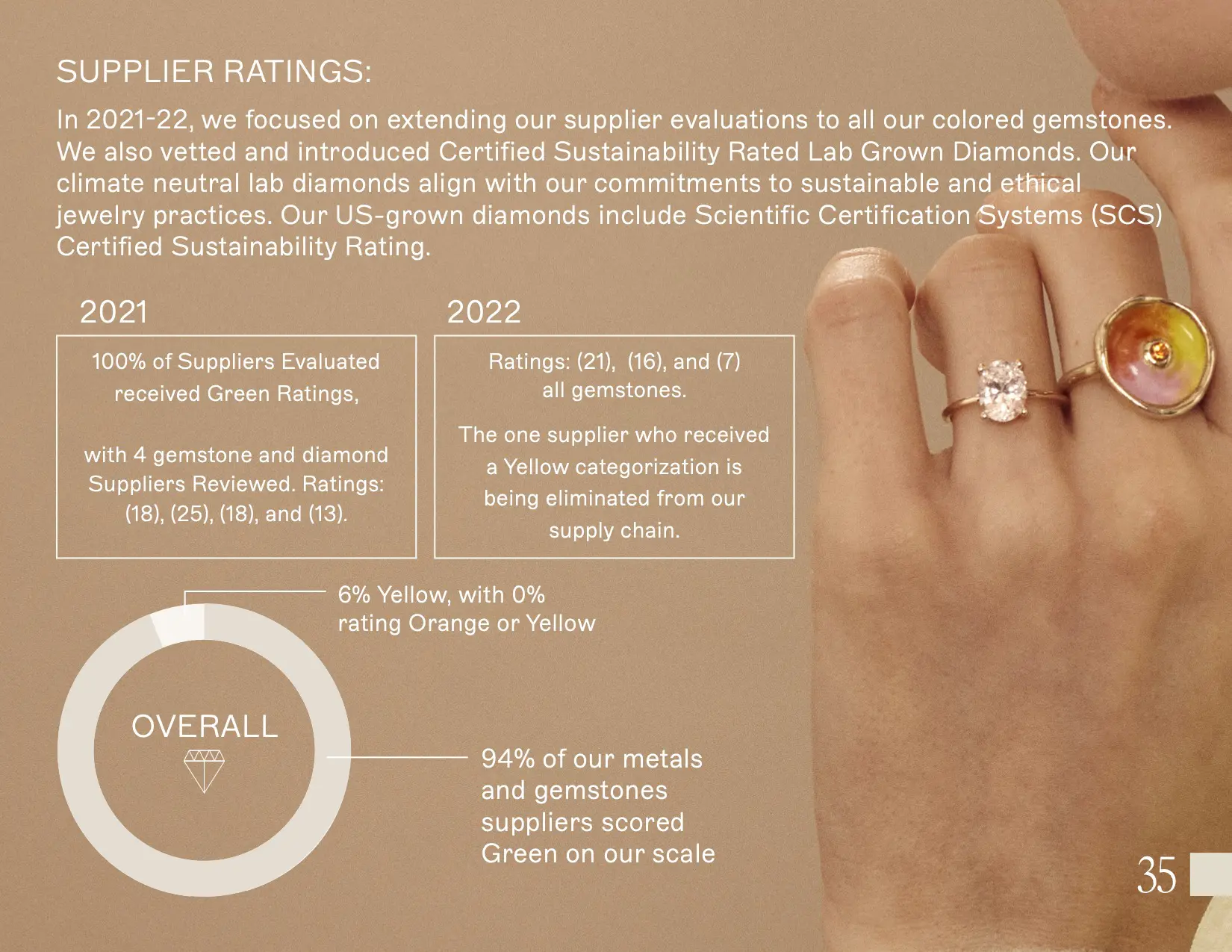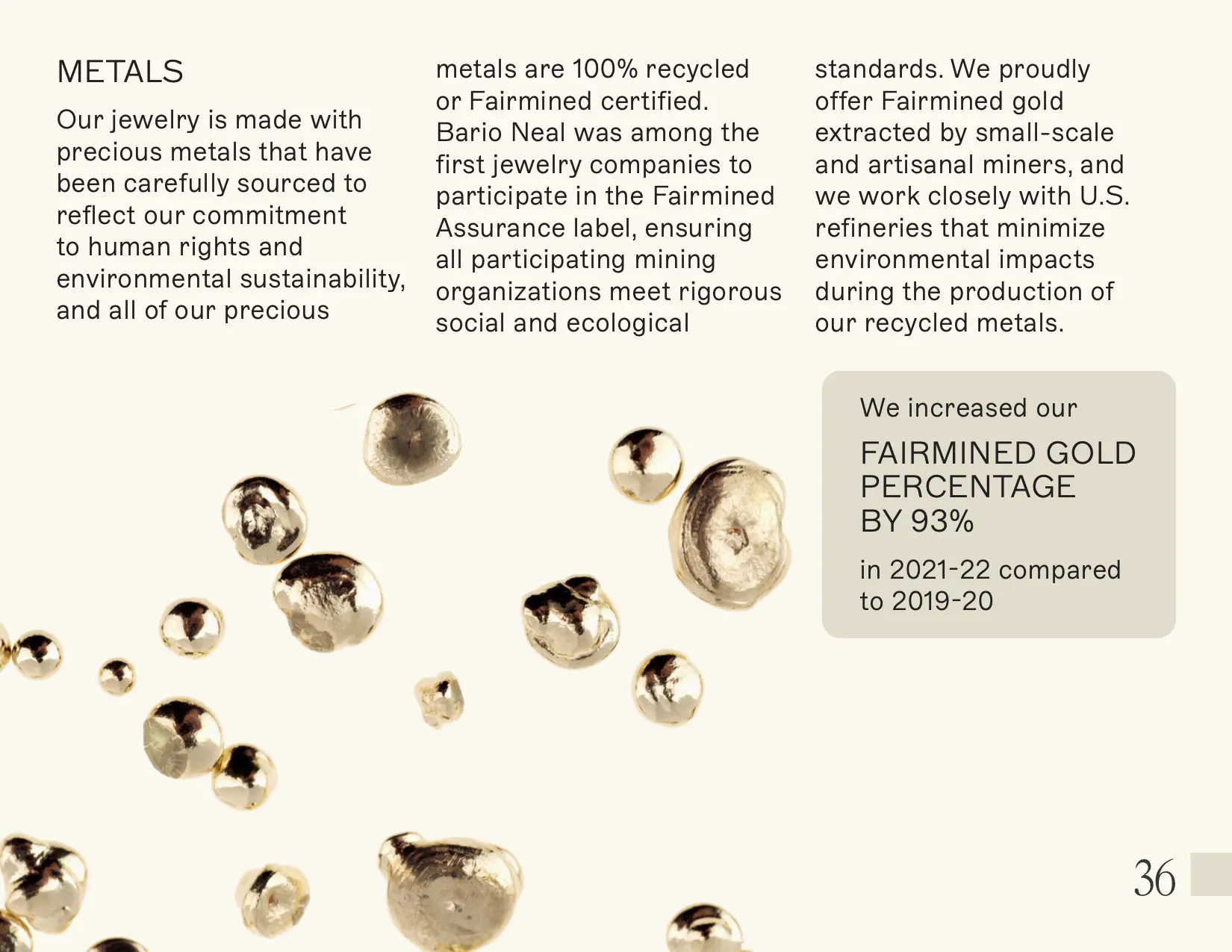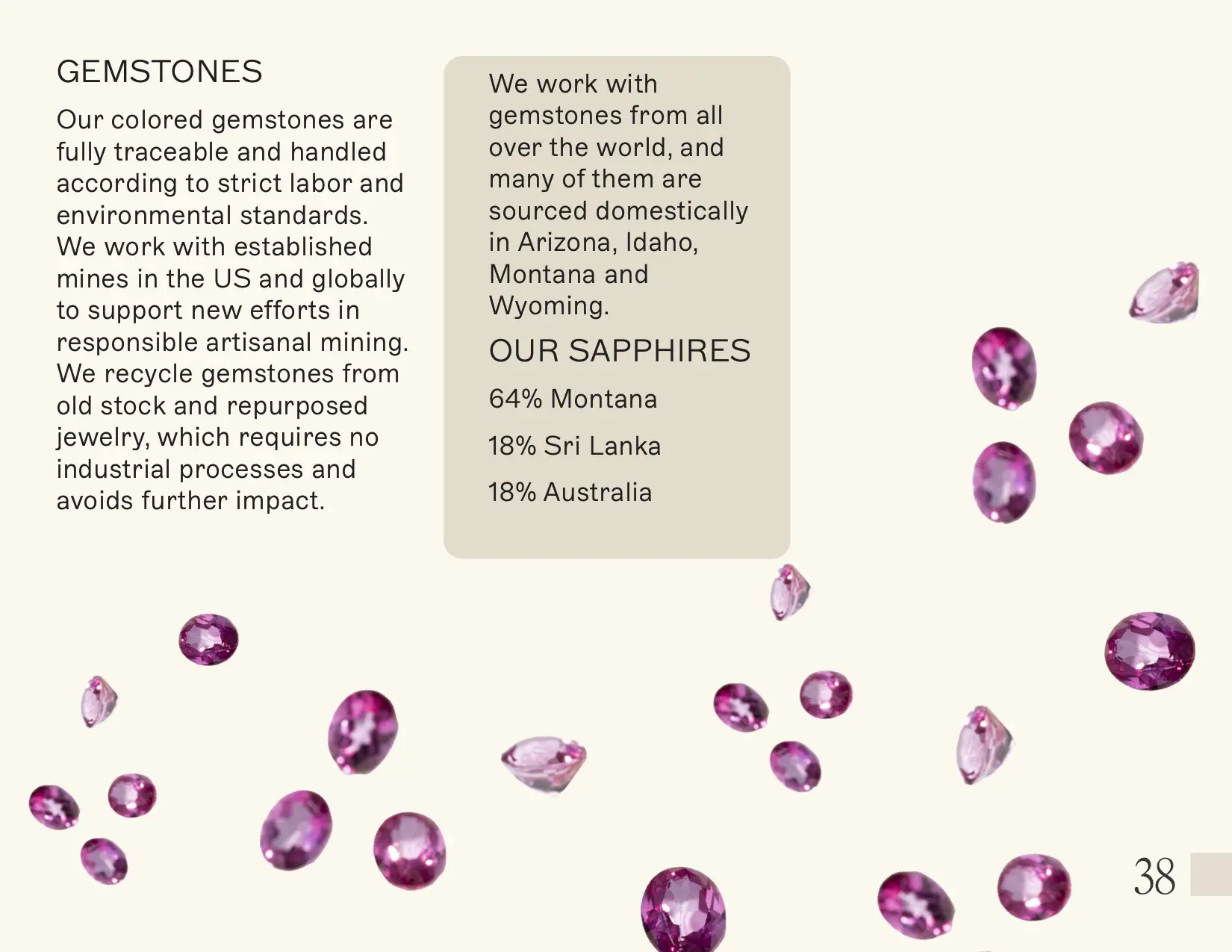Forging a Better Future
It’s a privilege to make ethical jewelry that celebrates love and life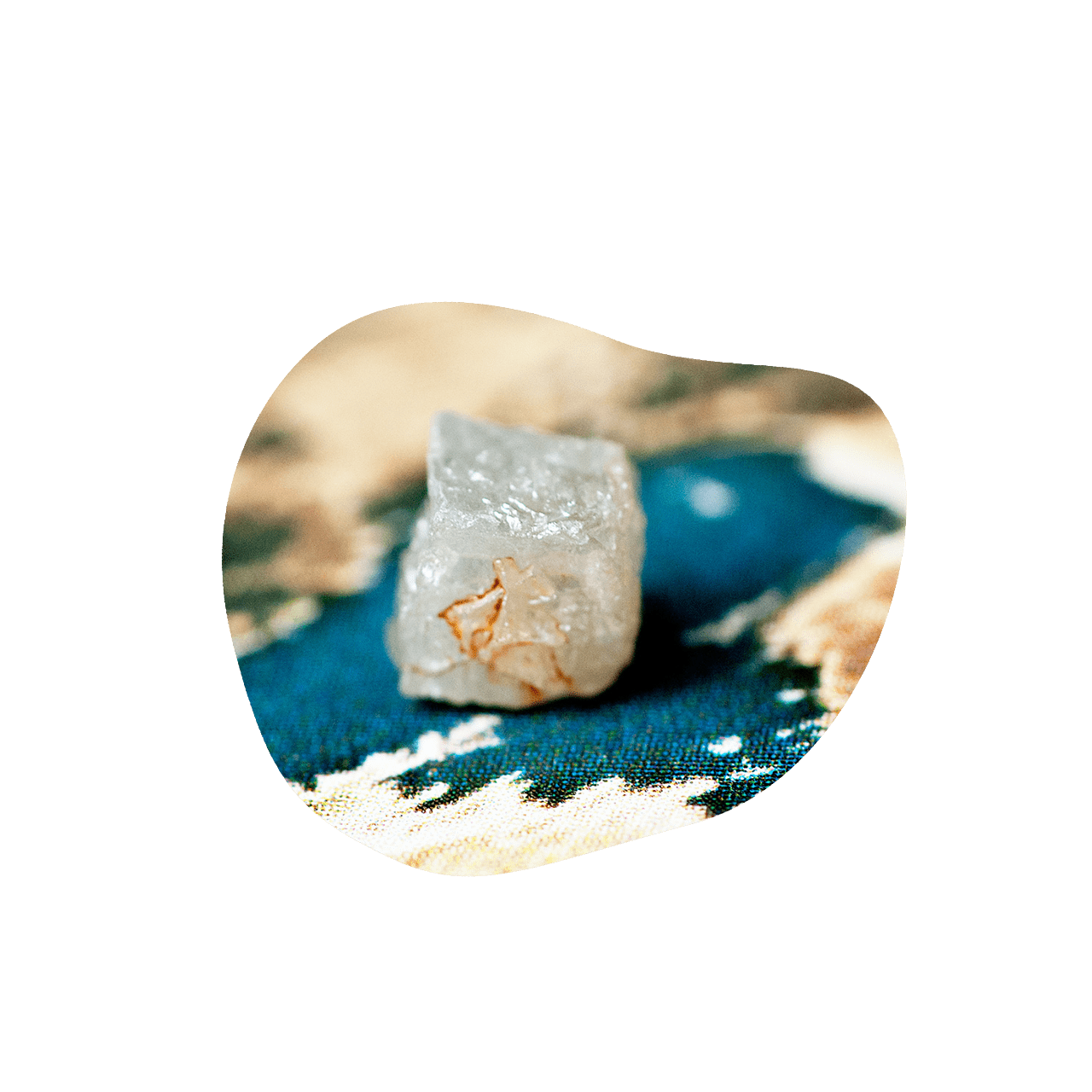 for all identities and experiences.
for all identities and experiences.
Equality, ethical craft, and social and environmental responsibility are central to our vision. 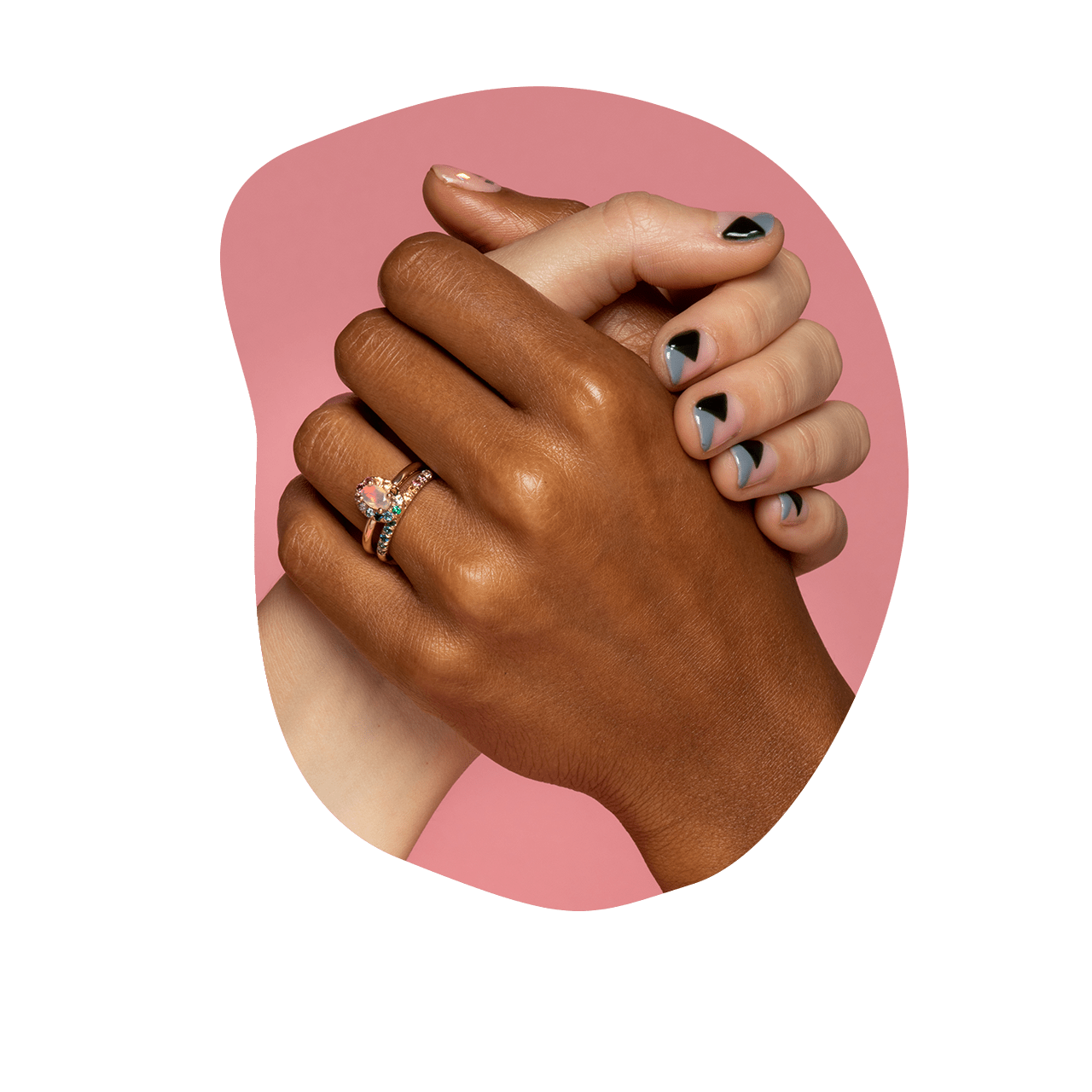
We’re committed to maintaining transparency and continuous improvement  to create a new sustainable standard within the jewelry industry.
to create a new sustainable standard within the jewelry industry.
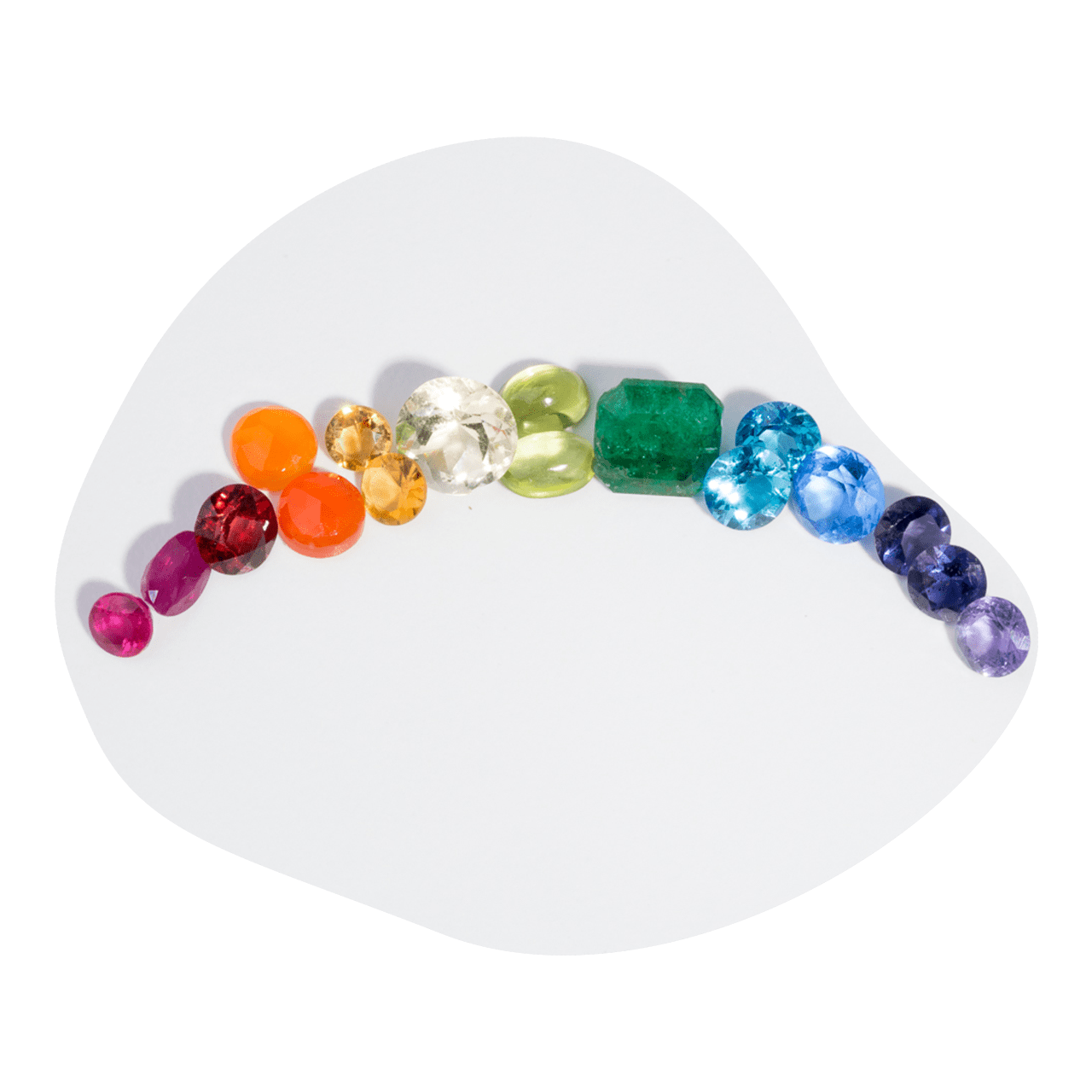
We make jewelry for everyone and any occasion, marriage and beyond. We don’t prescribe to the heteronormative ideals predominant in the jewelry industry — the right to love who you choose is one of our founding beliefs. Our design ethos is gender-neutral and size-inclusive, and we love working with customers to create pieces that celebrate and reflect their identity and experience.
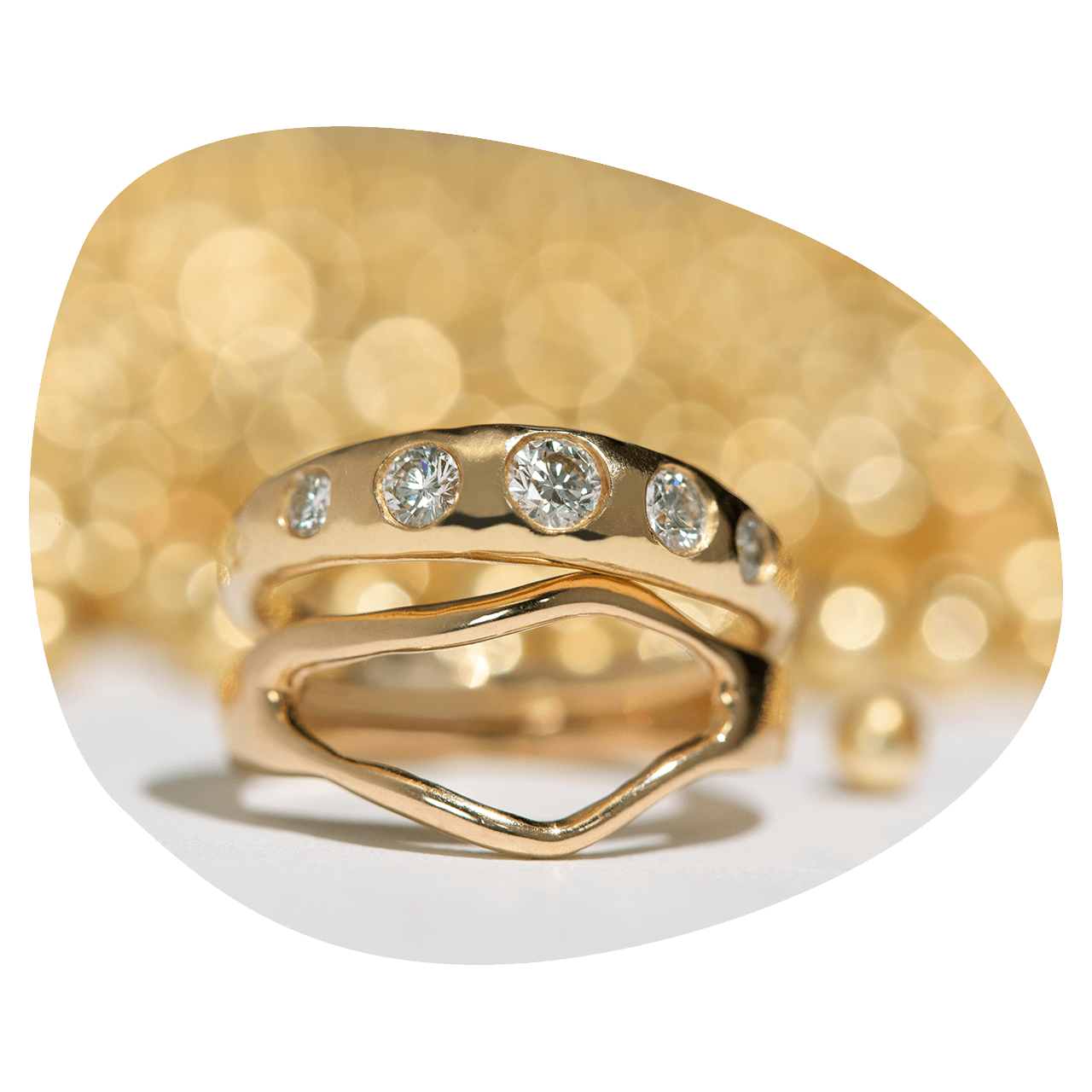
Our jewelry is made with precious metals that have been carefully sourced to reflect our commitment to human rights and environmental sustainability and are 100% recycled or Fairmined certified. Bario Neal was among the first jewelry companies to participate in the Fairmined Assurance label, ensuring all participating miners meet rigorous social and ecological standards. We proudly offer Fairmined gold extracted by small-scale and artisanal miners, and we work closely with U.S. refineries that minimize environmental impacts during the production of our recycled metals.
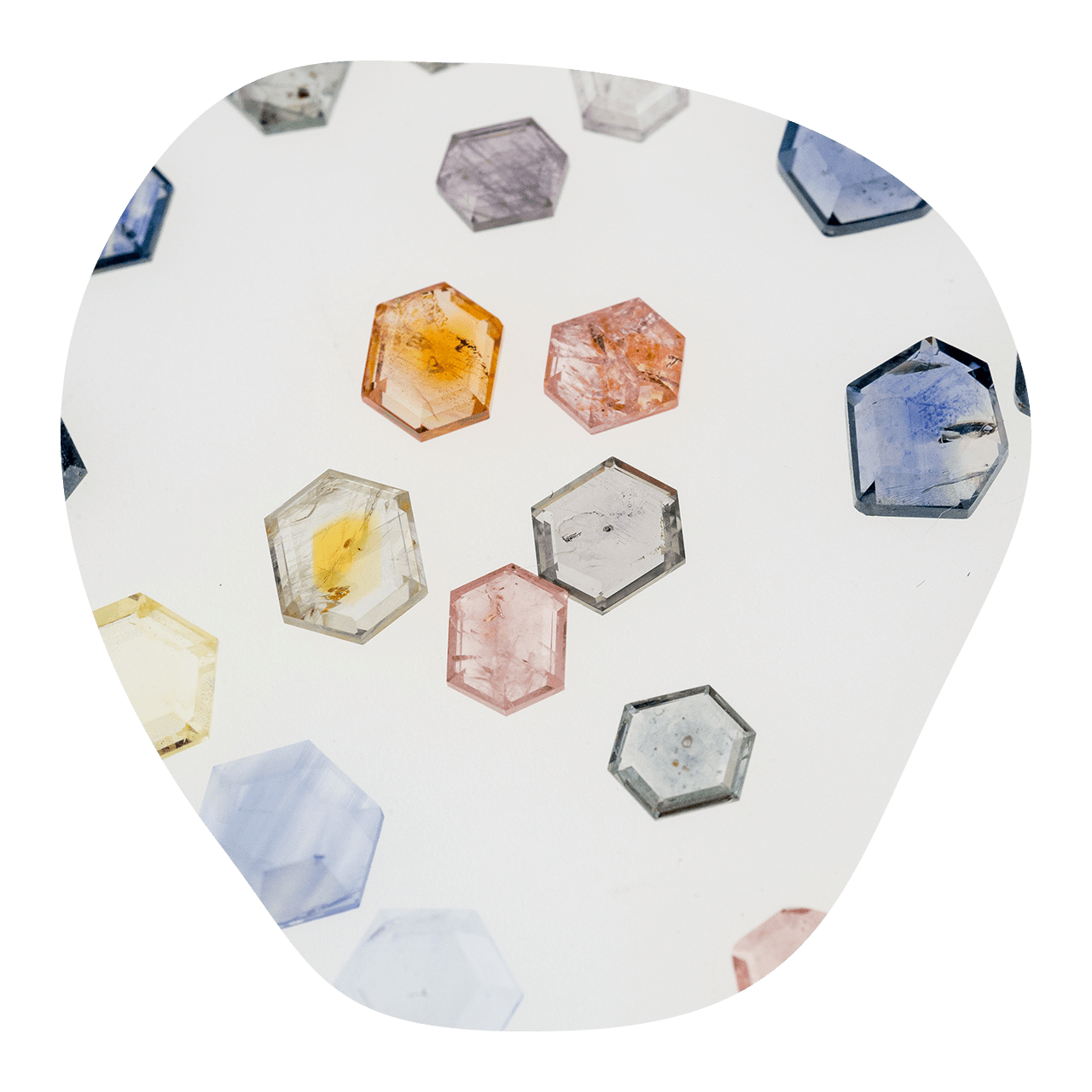
When Bario Neal began, there were few resources for tracing stones back to mines committed to environmental responsibility and human rights. Through research, industry outreach, and sustainable mining initiatives, we’ve forged higher standards with all of our diamonds and colored gemstones and pursued industry firsts, from custom-cut ethical origin baguette diamonds to traceable pavé diamonds and colored gemstones.
Our colored gemstones are fully traceable and handled according to strict labor and environmental standards. We work with established mines in the US and globally and support new efforts in responsible artisanal mining. We repurpose recycled gemstones from old stock or other jewelry, which requires no industrial processes and avoids further impact.
Our diamonds are fully traceable and primarily of recycled, Australian, and Canadian origin. Our lab-grown diamonds are certified Sustainability Rated and adhere to comprehensive sustainability requirements, including traceability, ethical stewardship, climate neutrality, sustainable production practices, and sustainability investments.
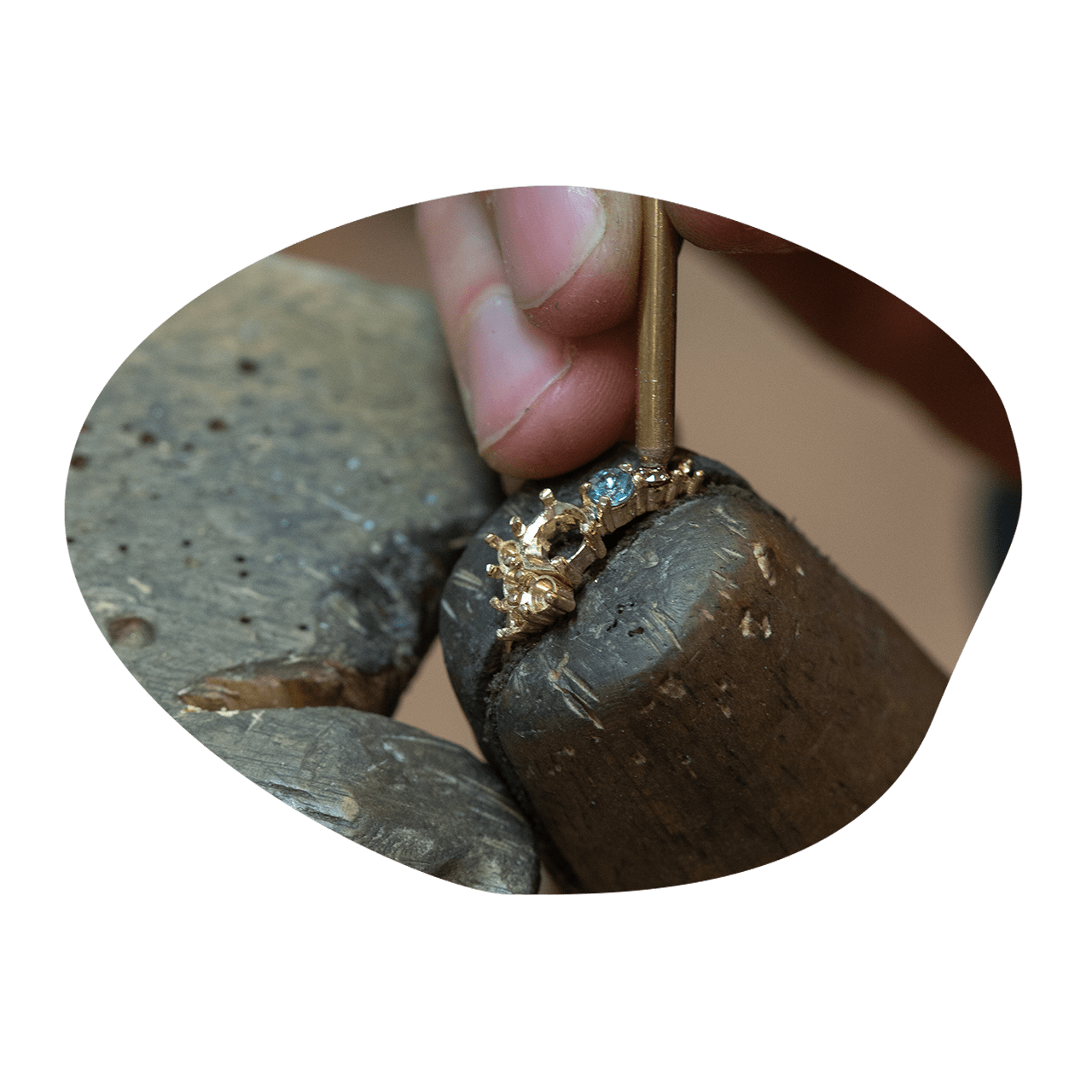
Bario Neal was founded in Philadelphia, Pennsylvania. The city is still home to our flagship store and workshop, and we’re proud to be part of a thriving art, design, and makers’ community. All of our jewelry is crafted in-house or in collaboration with American makers, which allows us to reduce our environmental footprint and create products with minimal impact.
Environmentalism isn’t a trend at Bario Neal. Material sourcing, packaging, and the longevity of a design are a part of our process — we consider how a material will hold up in daily wear and how easily it can be recycled in fifty years. Becoming carbon neutral is one of our primary goals. In our studio, offices, and showrooms, we have policies to minimize our waste and measure our carbon output and water usage. We actively seek alternatives for chemicals and processes that can be toxic or wasteful, and we’re constantly improving. We measured our impacts as a business and compiled the findings into our first-ever Sustainability Report.
To us, ethical diamonds are more than just conflict-free. We work with a fully traceable supply chain, from mine to market. Our diamonds are primarily of recycled, Canadian and Australian origin, lab-grown.
Our recycled diamonds are as durable, precious, and high value as a diamond mined this week. Recycled diamonds are repurposed from old stock or other jewelry, so while we can’t determine their origins, no new mining is required, eliminating the environmental footprint and making them a sustainable choice.
Learn MoreOur Australian diamonds come from the Argyle Diamond Mine in the country’s northwestern region. Australian law mandates that all mining companies adhere to non-detrimental environmental and labor practices when extracting natural resources like diamonds. Most of our Australian diamonds are cut and polished in Mumbai, Valsad, or Surat facilities, which our suppliers visit to ensure fair and healthy working conditions.
Learn MoreOur Canadian diamonds come from Northwest Territories mines. The mining and production of all Canadian diamonds are subject to the strict standards set by the Canadian Diamond Code of Conduct and the Northwest Territories governments, designed to protect the Arctic environment, mine workers, and surrounding communities.
Learn MoreBario Neal is proud to partner with a trusted supplier that offers the world’s first Sustainability Rated lab-grown diamonds. Unlike other lab-grown diamonds on the market, our lab-grown diamonds are USA-made, fully traceable, and 100% climate-neutral through sustainability and offset investments equating to 18x their climate footprint. Lab-grown diamonds eliminate toxic emissions and significantly reduce the energy use of conventional mining as well as potential human rights abuses.
Learn MoreWe love the chance to create meaningful jewelry using these storied gems. Resetting an heirloom diamond is a way to honor the past and stay true to the modern you. By choosing to use a diamond from your family jewelry box and not buying brand new, you’re averting the environmental impacts of diamond mining and lab-grown diamond manufacturing.
Learn MoreAside from the beautiful, natural characteristics of raw — or rough — diamonds, these one-of-a-kind stones avoid the cutting and polishing processes, eliminating environmental and health abuses.
Learn MoreEnsuring melee diamonds are ethically sourced is challenging, as many suppliers avoid the extra legwork necessary for full traceability for these small gemstones (typically less than 0.18 carat). However, our newly mined melee diamonds from Australia or Canada are fully traceable, and our recycled melee diamonds are repurposed, avoiding the human and environmental impact of mining.
Learn MoreLower in price than their higher clarity counterparts means less economic incentive for suppliers to trace black diamonds to their origin. We’ve worked hard to find a source that meets our rigorous standards, and we now source our black diamonds through a trusted partner who travels to three different mines in Brazil, Canada, and Australia. Like all black diamonds, irradiation makes them consistently black throughout.
Learn MoreGemstones sourcing is where we have the most direct relationships with miners and suppliers and can purchase nearly directly from individuals and cooperatives in ways that support sustainable development. Some of our suppliers provide micro-financing to small-scale mining operations to help them protect and restore the biodiversity of the lands they affect and assist financially with goals that positively impact their communities. Through these relationships, we’re able to provide high-quality, traceable gems while supporting an industry that is steadily moving towards rigorous environmental, labor, and health standards.
Most of our sapphires come from the Chimwadzulu Hill Mine in southern Malawi, a small-scale operation that protects its surrounding environment. We also source sapphires from Montana, where U.S. labor and environmental laws ensure they are fully traceable, and Australia, where Fair Trade regulations and environmental stewardship programs are maintained.
Learn MoreWe source ruby slices in Mozambique through an ethical supplier with an environmental and ethical commitment. Our supplier provides financial support to further develop environmental stewardship programs, community investment, and worker welfare.
Learn MoreWe responsibly source emeralds from a mine site in Zambia that upholds environmental and ethical commitment. Our supplier provides financial support to develop environmental stewardship programs, community investment, and worker welfare when needed.
Learn MoreWe source all of our semi-precious gems based on quality and transparency — we only offer gems from suppliers or mines that meet our high standards for environmental care and social responsibility.
Learn MoreWe source aquamarine from a sustainable, socially responsible supplier in Brazil and the nonprofit organization Tanzania Women Miners Association. TAWOMA’s mission is to help women miners organize and access resources that will help them carry out mining activities that are safe, economically viable, and environmentally sustainable.
Learn MoreOur andalusite currently comes from a mine in Madagascar through a highly respected ethical supplier.
Learn MoreOur black jade is sourced from a Wyoming mine and faceted by hand in Philadelphia.
Learn MoreWe source our opals from an Ethiopian mining collective in Wollo Province focused on educating the miners’ children and families. The collective mostly use hand tools since they mine close to the surface, ensuring a low environmental impact. The opals are then cut and polished in a well-respected facility in Jaipur, India, that we have worked with for many years.
Learn MoreOur colored melee gemstones (under .18 carat) are carefully sourced from trusted suppliers and mines to ensure they are of the highest quality and the most ethical available on the market.
Learn MoreReclaimed or recycled gemstones entered the supply chain once and were repurposed from other jewelry or old stock, requiring no new mining and avoiding human and environmental impact.
Learn MoreAn heirloom stone is a gem that has been passed down through a family. Similar to recycled gemstones, they don’t create human or environmental impact. As part of our commitment to ethical and sustainable sourcing, we will not reset newly purchased non-traceable colored gems into one of our settings.
Learn MoreResponsibly sourced metals are the cornerstone of our commitment to minimizing our environmental footprint. Conscientious craftsmanship begins with Fairmined and Recycled metal.
Our Fairmined gold is extracted by responsible small-scale and artisanal miners. Responsible mining lessens environmental impacts, improves safety for miners and their families, and reduces work-related violence. Fair mining is nature-minded, focusing on restoration efforts, protecting against water contamination, and avoiding the use of mercury or cyanide. We’ve partnered with Pure Earth, Better Without Mercury, and the Mercury Free Mining Project, who help further this mission globally.
Learn MoreWe use 100% recycled silver, gold, palladium, and platinum from old or unwanted jewelry, dust and filings from jewelers’ workshops, silverware, and industrial or photo products. These materials require no new mining and are sourced from nearby refineries invested in reducing their facilities’ environmental and health impacts through features like closed-loop water systems, sustainability certifications, and hydroelectric power.
Learn MoreChain and findings (like earring posts and backs) can be difficult to source in 100% recycled or Fairmined metals. While most of our findings and chains are 100% recycled, a few are made from conventional metals as we develop recycled and Fairmined gold to replace them.
Learn More
Learn more about how your jewelry is impacting people and the planet with our newly published Sustainability Report. We are grateful for your support of ethically sourced fine jewelry, inclusivity, and women’s empowerment. Thank you for believing in the power of jewelry.
It was important for us to build a giveback program into our business model to scale our global impact level and help make meaningful change. We focus these efforts on donating to organizations and initiatives related to environmental and social impact in the jewelry industry, women’s empowerment, LGBTQIA+, and art and education in our communities.
Better Without Mercury • Village Health Works • The Picasso Project • National Resource Defense • Earthworks • Planned Parenthood • Human Rights Campaign • Voices4 • Pure Earth • Black Lives Matter • The Philadelphia Bail Fund • Black Visions Collective • Racial Justice Organizing Committee • Women’s Medical Fund • Public Interest Law

